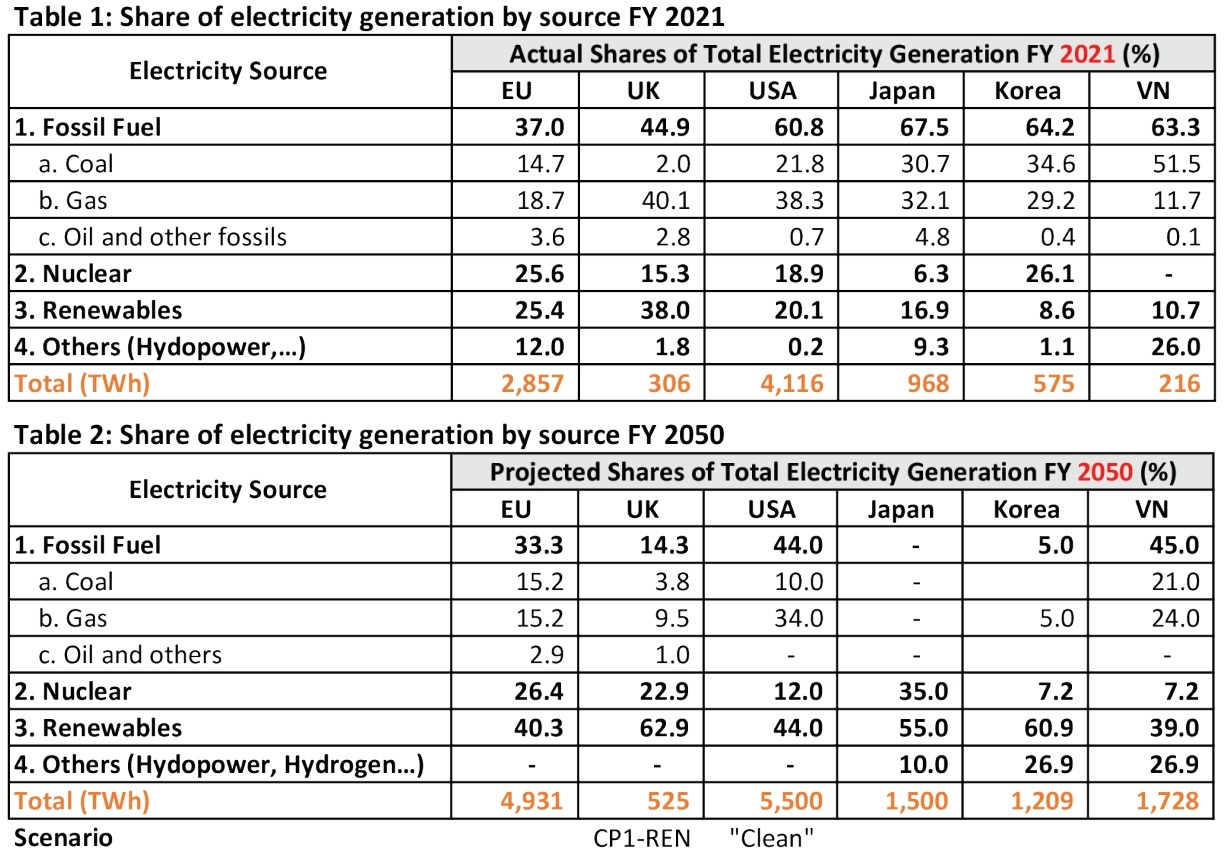Building on Vietnam’s unique advantages
 |
| John Rockhold - President, Pacific Rim Investment & Management |
To ensure its position in the pantheon of economically developed nations, Vietnam will need to make energy security its number one priority. No country has been able to embrace economic development without guaranteed access to affordable energy. While this does not mean a continued reliance on fossil fuels and a reneging on its bold commitment to the decarbonisation of its economy, it does mean that Vietnam will need to pursue a path that allows it to meet its commitment to its citizens.
As a middle-income country, Vietnam is reliant upon a legacy energy system – the transition from which is a multi-decade endeavour and a multi-trillion-dollar investment opportunity. The notion, however, that there is a renewable solution that will allow Vietnam to leapfrog its legacy energy system is wishful thinking at best, and one that risks driving the country back into poverty at worst.
The Share of Electricity Generation by Source report shows where Vietnam and other key nations stood at the end of 2021 (see Table 1). In 2050, we see Vietnam, like others, moving away from coal and gas to renewables and nuclear (see Table 2). Vietnam’s total CO2 emissions per capita are low compared to others in and Vietnam’s total CO2 emissions are 0.8 per cent of the world’s total.
In general, countries are protecting their economies now with known affordable technologies and relying on the development of future technologies like green hydrogen, fuel cells, and energy storage to become affordable. That also makes renewables sustainable and affordable in future development.
 |
Vietnam also has a similar obligation to invest in decarbonising its economic growth and preparing its country, its economy, and its populace for the impending impact of climate change. Doing so will unlock truly sustainable economic growth in the form of high-paying white-collar jobs, technology and skills transfer, high-quality foreign direct investment, and increased international competitiveness. Here, Vietnam should cooperate with ASEAN countries in sustainable energy tech developments.
This will not happen overnight, and any international partner wishing to engage and support Vietnam in achieving a decarbonised future needs to adopt a long-term view that is based upon the very real constraints of its present situation. Vietnam cannot and should not be held to Western standards of decarbonisation, especially when western nations are the largest per capita emitters of carbon.
Secondly, Vietnam should not be made to put its development ambitions on hold while the necessary renewable technology is invented. Rather, Vietnam is in the unique and advantageous position to adopt a long-term approach to decarbonising its economy, while addressing the very real challenges that it is facing as a country.
On carbon taxes, the EU Taxonomy was designed as a classification system to provide companies, investors, and policymakers with appropriate definitions for which economic activities can be considered environmentally sustainable, for upcoming carbon taxes. The methodology is used by the European Commission (EC) to define which economic activities should be labelled as green and contribute to meeting Europe’s goals of climate neutrality by 2050 and reducing greenhouse gas emissions by 55 per cent by 2030.
For the last two and a half years, the actual green list of environmentally-sustainable activities has been in development with extensive input from experts from across industry, the financial sector, the scientific community, and civil society, now called the EU Platform on Sustainable Finance. At the end of last year, after months of deliberation and intensive lobbying, the EC sent a draft for consultation to the platform, and has included energy generation from fossil gas or nuclear power as green investments.
What the stars mean:
★ Poor ★ ★ Promising ★★★ Good ★★★★ Very good ★★★★★ Exceptional
Related Contents
Latest News
More News
- Bac Ai Pumped Storage Hydropower Plant to enter peak construction phase (January 27, 2026 | 08:00)
- ASEAN could scale up sustainable aviation fuel by 2050 (January 24, 2026 | 10:19)
- 64,000 hectares of sea allocated for offshore wind surveys (January 22, 2026 | 20:23)
- EVN secures financing for Quang Trach II LNG power plant (January 17, 2026 | 15:55)
- PC1 teams up with DENZAI on regional wind projects (January 16, 2026 | 21:18)
- Innovation and ESG practices drive green transition in the digital era (January 16, 2026 | 16:51)
- Bac Ai hydropower works stay on track despite holiday period (January 16, 2026 | 16:19)
- Fugro extends MoU with PTSC G&S to support offshore wind growth (January 14, 2026 | 15:59)
- Pacifico Energy starts commercial operations at Sunpro Wind Farm in Mekong Delta (January 12, 2026 | 14:01)
- Honda launches electric two-wheeler, expands charging infrastructure (January 12, 2026 | 14:00)

 Tag:
Tag:


















 Mobile Version
Mobile Version